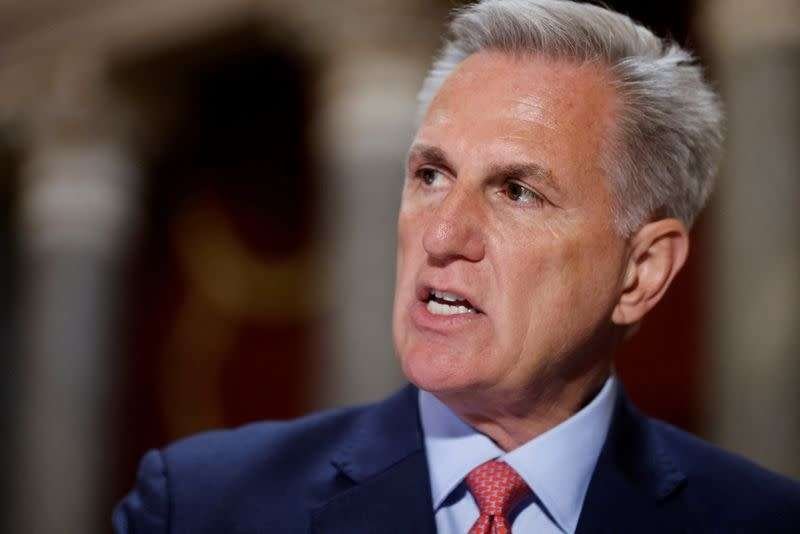US House Passes Bill to Raise Debt Ceiling – On Wednesday, the House of Representatives successfully passed a bill aimed at increasing the debt ceiling, overcoming a significant legislative obstacle just days before the anticipated U.S. default.
The final vote in the House resulted in a tally of 314 to 117, receiving support from 149 Republicans and 165 Democrats. Notably, House Republican Speaker Kevin McCarthy may have cause for concern as 71 members of his party opposed the agreement he negotiated with President Joe Biden.
Following the successful passage of the bill, McCarthy expressed confidence and minimized concerns regarding the divisions within the House Republican conference. He took the opportunity to celebrate the policy concessions he was able to achieve through his negotiations with President Biden, highlighting his accomplishments.
People Also Read: Texas Attorney General Impeached by Republican-led House in Historic Vote
“I have been thinking about this day before my vote for speaker because I knew the debt ceiling was coming. And I wanted to make history. I wanted to do something no other Congress has done,” McCarthy told reporters after the vote. “Tonight, we all made history.”
President Biden commended the House for approving the legislation and urged the Senate to promptly consider it in order to prevent a default. Treasury Secretary Janet Yellen has issued a warning that, unless the debt ceiling is increased, the federal government will be unable to meet its financial obligations starting from June 5.
“This budget agreement is a bipartisan compromise. Neither side got everything it wanted,” Biden said in a statement. “I have been clear that the only path forward is a bipartisan compromise that can earn the support of both parties. This agreement meets that test.”
The House-approved debt ceiling bill would extend the government’s borrowing limit until January 2025, guaranteeing that the matter will not arise again prior to the next presidential election. In his negotiations with President Biden, McCarthy effectively advocated for reductions in government spending and modifications to the work requirements associated with the Supplemental Nutrition Assistance Program.
However, the concessions secured by McCarthy fell considerably short of the expectations of the members of the freedom caucus. They had advocated for more substantial spending cuts and significantly stricter work requirements for benefit programs. They criticized the debt ceiling compromise as an inadequate effort to address the nation’s debt, which currently exceeds $31 trillion.
Representative Scott Perry of Pennsylvania, chair of the freedom caucus, said on Twitter before the vote, “President Biden is happily sending Americans over yet another fiscal cliff, with far too many swampy Republicans behind the wheel of a ‘deal’ that fails miserably to address the real reason for our debt crisis: SPENDING.”
In a final effort to impede the progress of the debt ceiling bill, members of the House Freedom Caucus opposed a procedural motion before the ultimate vote on Wednesday afternoon. With 29 Republicans voting against the motion, McCarthy had to rely on Democratic support to advance the debt ceiling proposal.
Ultimately, 52 Democrats voted in favor of the motion, setting the stage for the final vote and effectively guaranteeing the passage of the bill. Representative Hakeem Jeffries, the House Democratic leader from New York, derided McCarthy’s inability to unify his party, asserting that the procedural vote illustrated the speaker’s loss of control over the House floor.
People Also Read: Republican Iowa Governor Rolls Back State’s Child Labor Law Protections
“It’s an extraordinary act that indicates just the nature of the extremism that is out of control on the other side of the aisle,” Jeffries said during the floor debate before the final vote. “Extreme Maga Republicans attempted to take control of the House floor. Democrats took it back for the American people.”
While Representative Jeffries strongly criticized McCarthy and his Republican counterparts, he, along with the majority of the House Democratic caucus, still supported the debt ceiling bill. Despite expressing disappointment over the included spending cuts, these Democrats emphasized the paramount significance of averting a default, which outweighed their individual concerns regarding the specific provisions of the legislation.




